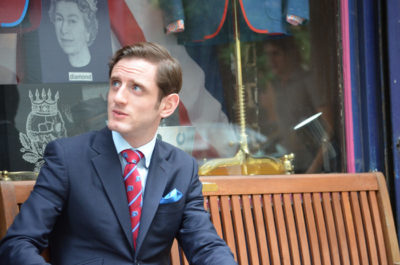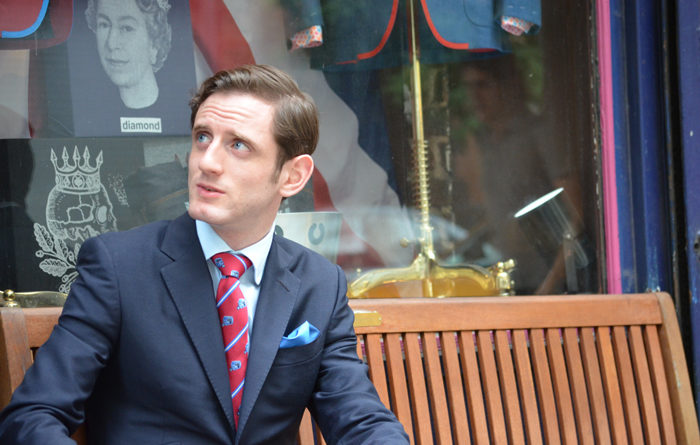INTERVIEW: Clifford Odets’ classic ‘Awake and Sing!’ receives Yiddish-language revival
New York audiences have fond memories of Clifford Odets’ Awake and Sing! thanks to some exquisite revivals over the years. The latest interpretation of the play comes thanks to the New Yiddish Rep, and it will be a rare chance for theatergoers to enjoy the classic in the Yiddish language. Performances run through Dec. 24.
The translation used for this production dates back to 1938 and the Federal Theatre Project. For those unable to follow along, supertitles are available to understand the dialogue.
The play surrounds the drama of the Bergers, a lower-middle-class, three-generation Jewish family living in a Bronx apartment during the Depression, according to press notes. David Mandelbaum, artistic director of New Yiddish Rep, directs the production (he also stars).

In the show, Luzer Twersky plays an immigrant who marries into the Berger family. The successful actor is also the subject of the new Netflix documentary One of Us, a film about Twersky’s breaking from his religious community, from co-creators Heidi Ewing and Rachel Grady. He recently exchanged emails with Hollywood Soapbox. Questions and answers have been slightly edited for style.
What first attracted you to this production of Awake and Sing!?
The theater company obviously first and foremost. This will be my third play with New Yiddish Rep. I love that I get to work with the same people again since we know what makes each other tick, and there’s a shorthand that developed in the past few years that we’ve been working together. New Yiddish Rep has become my stage home, and I absolutely adore everyone in the company.
What do you hope audiences learn or take away from Clifford Odets’ story?
The most important thing is for audiences to see themselves in the story. Even if they aren’t immigrants, we can all relate to the chase after the American dream without sacrificing our morals. I hope it makes the audience think, especially now that the baby-in-chief is someone who believes in power/wealth/status no matter the cost.
Do you believe some of the themes in the play continue to this day?
As I said earlier, I think it’s especially relevant today. I hope the audience asks themselves how far they’re willing to go to achieve their ‘dreams’ or to fulfill their desires.
From an actor’s perspective, what’s the main difference between performing for a month in Awake and Sing! (or any play) and taking a recurring role on a TV series, like you did with Transparent? Do you find the style of acting similar?
The biggest difference for me is that I never get to see my play, which is a bit sad. The acting is different since you can’t rely on editing or cutaway shots on stage. It is on me to keep the audience engaged every second. I always find that if I do a play after I’ve done a film, I’m told ‘We can’t hear you!’ And when I’m shooting a film after doing a play for a month, the director tells me to ‘stop shouting!’
You are one of the subjects of the Netflix documentary One of Us. Were you immediately open to the idea of having your personal story made into a documentary?
No, but when the greatest documentary filmmakers of our time ask you to be in a film…
By John Soltes / Publisher / John@HollywoodSoapbox.com
The New Yiddish Rep’s production of Awake and Sing!, performed in Yiddish, continues at the Theater at the 14th Street Y in New York City. Click here for more information and tickets.

